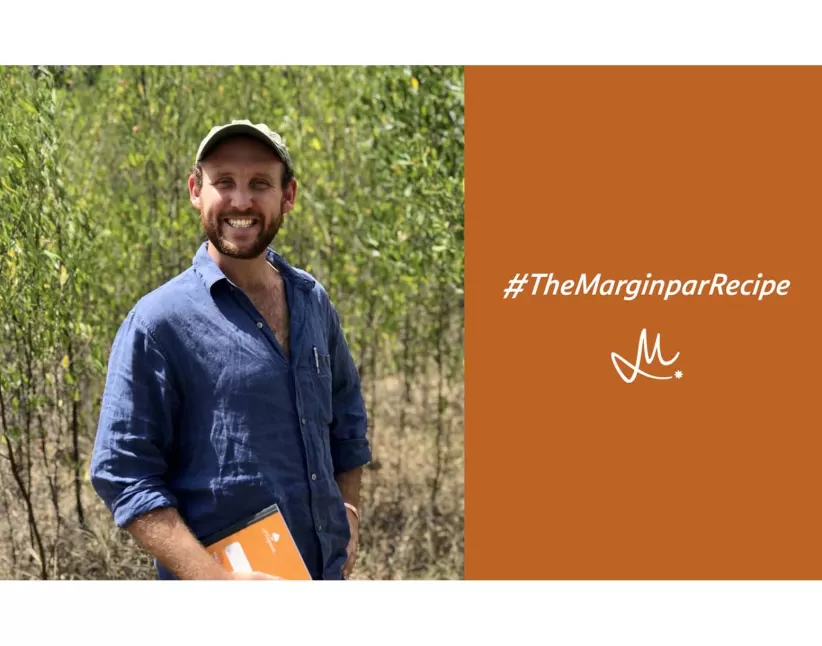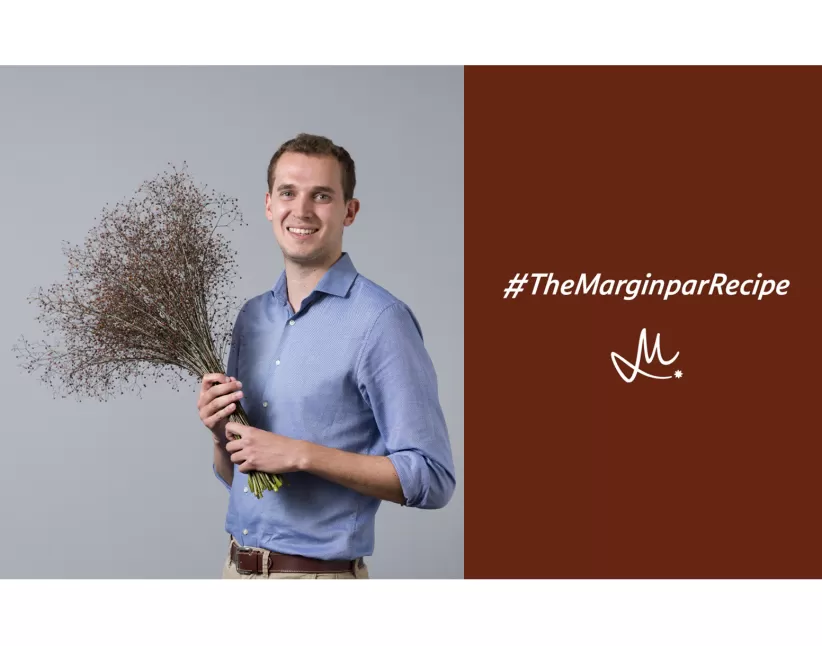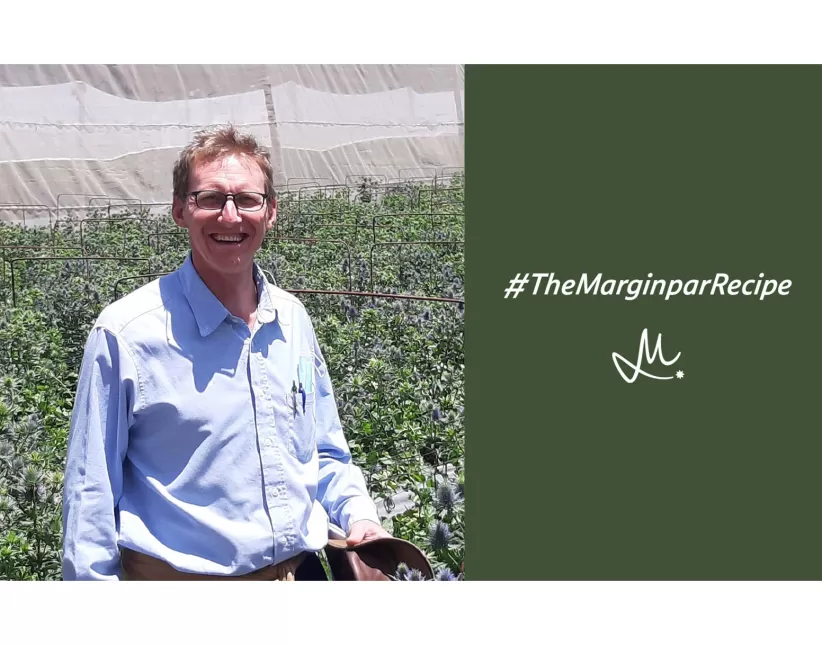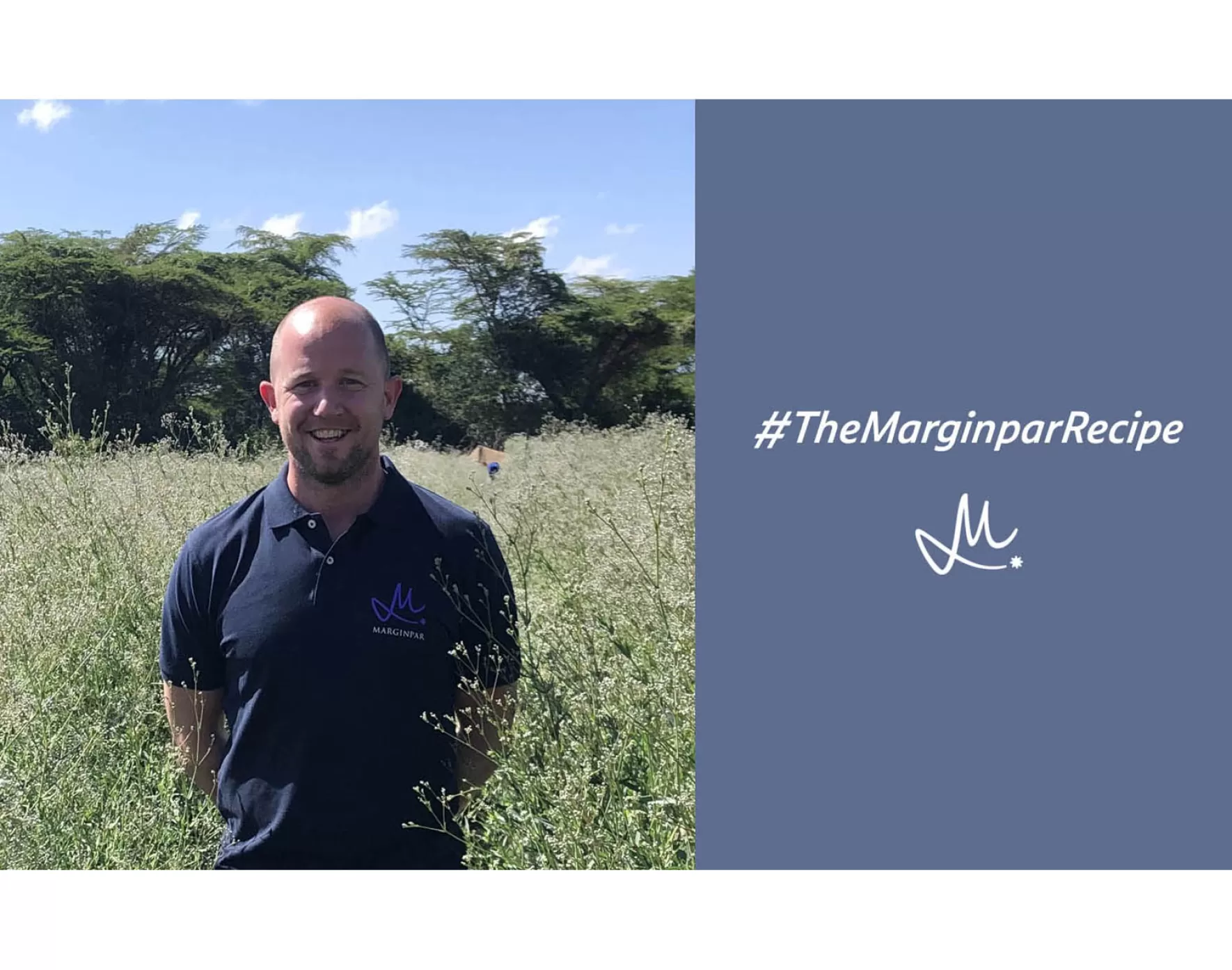
Jamie den Haan: "Predictability is key"
The Marginpar Recipe #7
Jamie den Haan (37) joined Marginpar in 2019 as Market Demand Planner, after working in the flowers business for 22 years. His connections in the flower world come in handy in his new role. Jamie links with partners & auctions and makes sure they all receive a good Marginpar package. With 120 different varieties, this is a nice challenge.
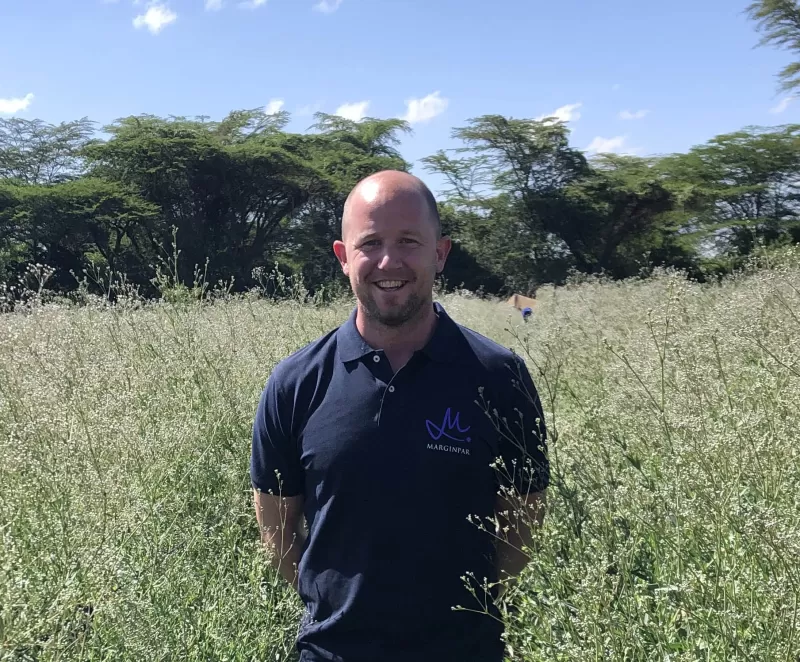
Predictability is key
Part of planning the Market Demand - the process of offering products and quantities that the market demands - is the daily distribution of the flowers that are on their way. Jamie: "Two days before flowers are sent from Africa, we receive the packing list. With this information, we divide the flowers for our regular partners' orders: the standing orders and the reservations. After that, the largest part remains for the auction clock. The balance between the clock and direct sales is closely monitored. The clock is still our biggest market and that is also where we serve the most customers. Therefore, we only offer our newer varieties to customers if the volume is large enough and if there is a constant basis on the clock. Once that base is there, they are also available to our partners." Jamie knows better than anyone that predictability is incredibly important, having represented a role as a buyer himself for many years.
”Buyers want to know what they can offer their customers.
"Most of our flowers go to the auction in Aalsmeer, then Rijnsburg and a limited range to Naaldwijk, Rhein Maas and Plantion. But through 'remote buying', our flowers are actually always within reach for everyone. Anyone who really wants to be sure of buying a certain variety can start buying before the auction on ‘clock presales’, where our flowers can also be found."
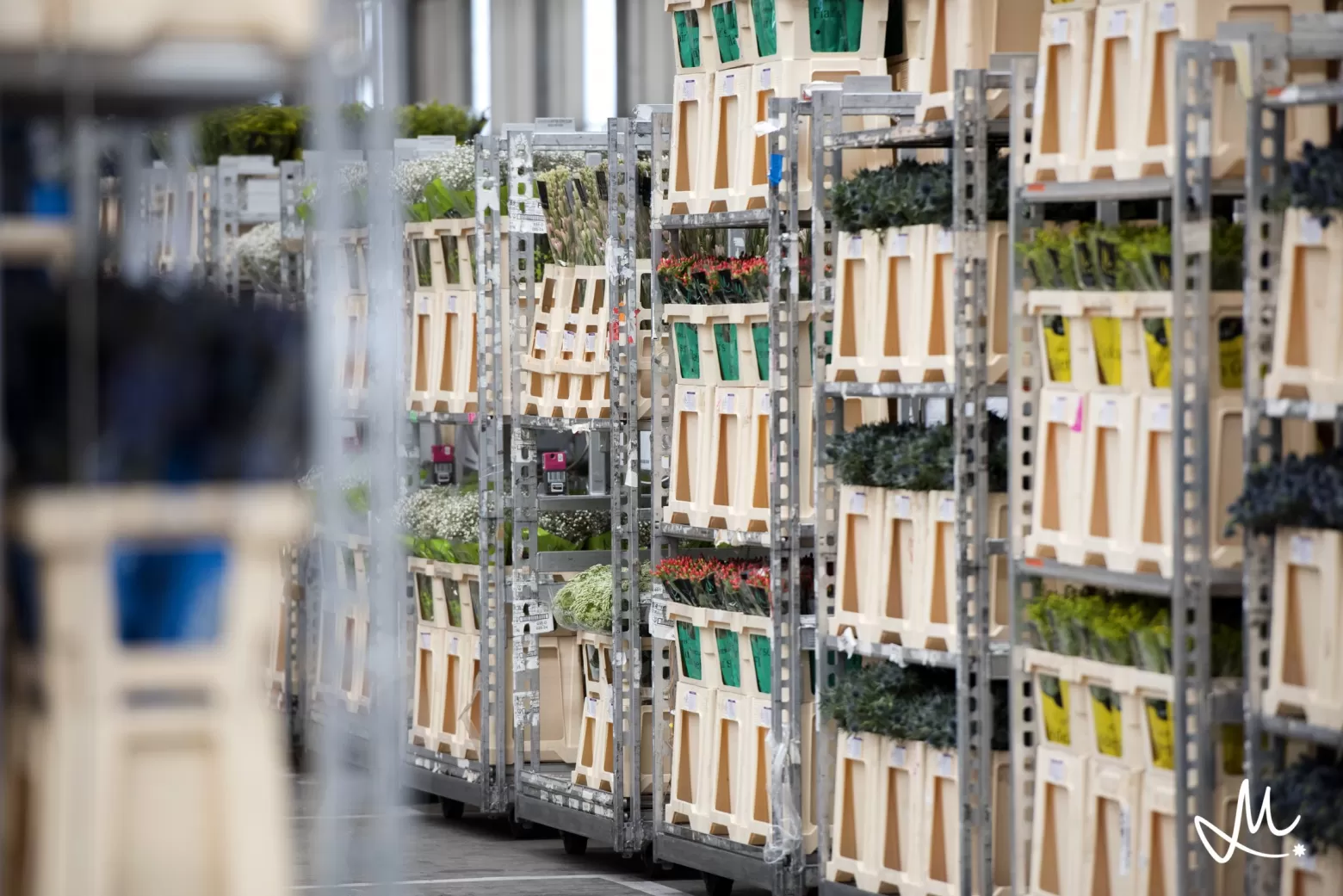
Responding to shortages and surpluses
At the moment, we know two days in advance what is coming. Soon that will be 10 days - with the help of our new forecasting software. Jamie: "As a Market Demand Planner, I am of course very happy with this. It allows us to respond much better to possible shortages or surpluses. We can therefore put a much more constant and thoughtful volume on the clock. Forecasting will always be difficult because nature can still cause changes, but it will become a lot better. On Fridays, the farms will enter the expected harvest for the coming week on DXP. This gives us a lot of time to plan. At the moment, we do have a logistical challenge because many planes are still grounded due to the pandemic. Normally, 60% of our flowers are flown in by passenger planes. So there is not enough capacity now, but as soon as more passenger planes start flying again, this will improve and we will be able to plan better. What we also see happening more and more is that flights that used to fly a north-south route from Europe to Africa and back are now flying east-west, because China pays more.
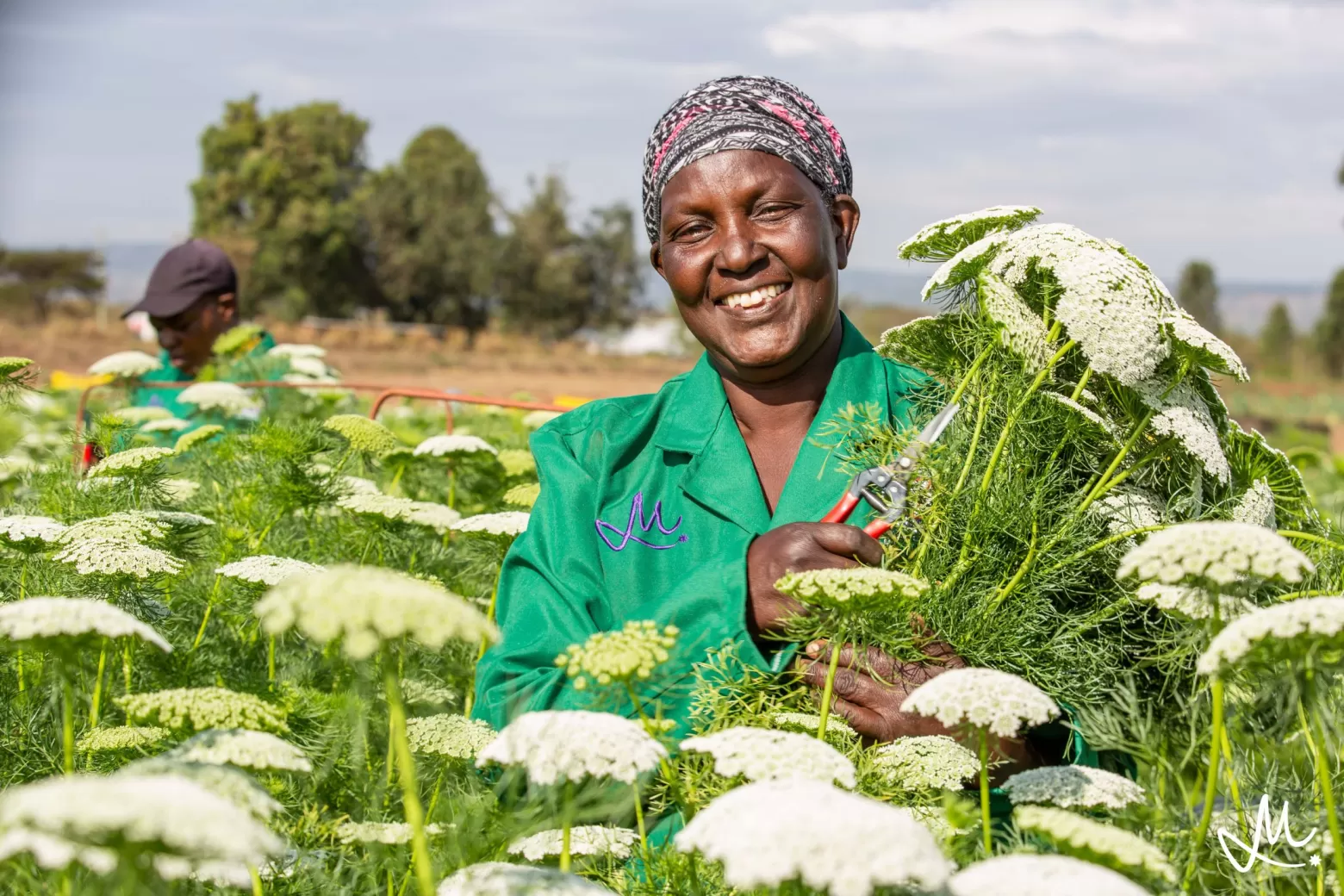
A full circle
The success of DXP depends on good cooperation between the teams in Africa and the Netherlands. To point out the importance of forecasting to the farms, Jamie, together with Sales colleague Michiel, recently visited our locations in Kenya and Ethiopia. Jamie: "A very special trip. For me it has become clear why irregularities sometimes occur. It was good to see the flowers grow, to see the cultivation methods and to learn about the challenges that the farms face every day. Conversely, we were also able to show our colleagues there how the market works here and why forecasting and Market Demand planning are so important: to inform our customers and to serve the clock optimally. Now we have come full circle, because we understand each other better."
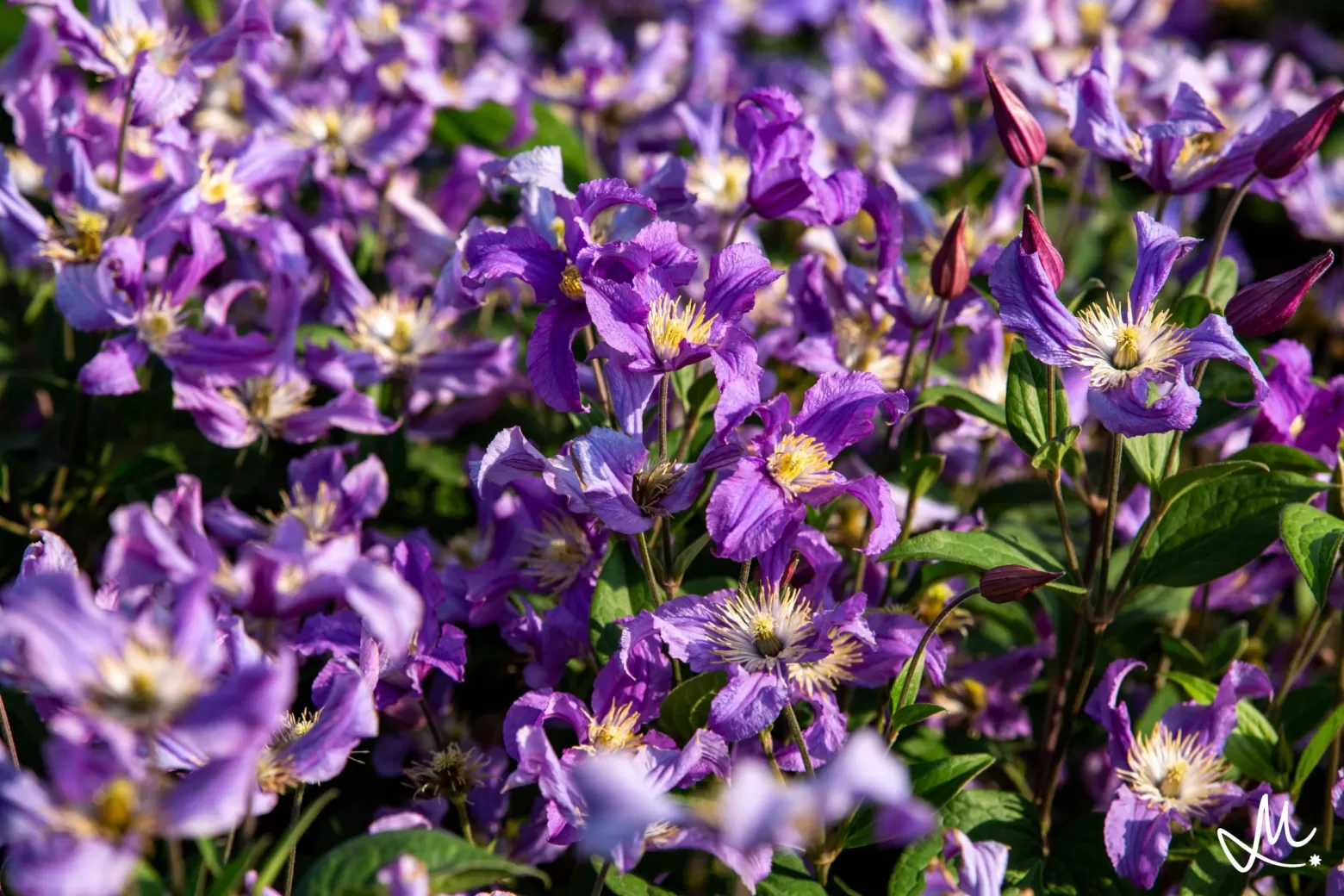
What makes us special
When we ask him what makes Marginpar different from other growers, he smiles: "We are the largest summer flower grower leading on the clock, with fantastic unique products. Like the Clematis, which is grown exclusively by Marginpar, a market has really been built for it in recent years, partly thanks to the strong marketing around it. With Eryngium and Solidago, we are market leader, year-round, thanks to the continuous supply and high quality. What also makes us special is the diversity of products that are available virtually all year round. There is a demand for this from the market; people want to be able to count on a product with the same quality and availability all year round. What I would still like to see is our own block on the clock, where all our flowers pass by together. That is not yet logistically possible in our current premises, but hopefully it will be in the future."
Next time…
We tell the story of farm manager Miriam Kimani of the Kariki Juja farm in Kenya.

